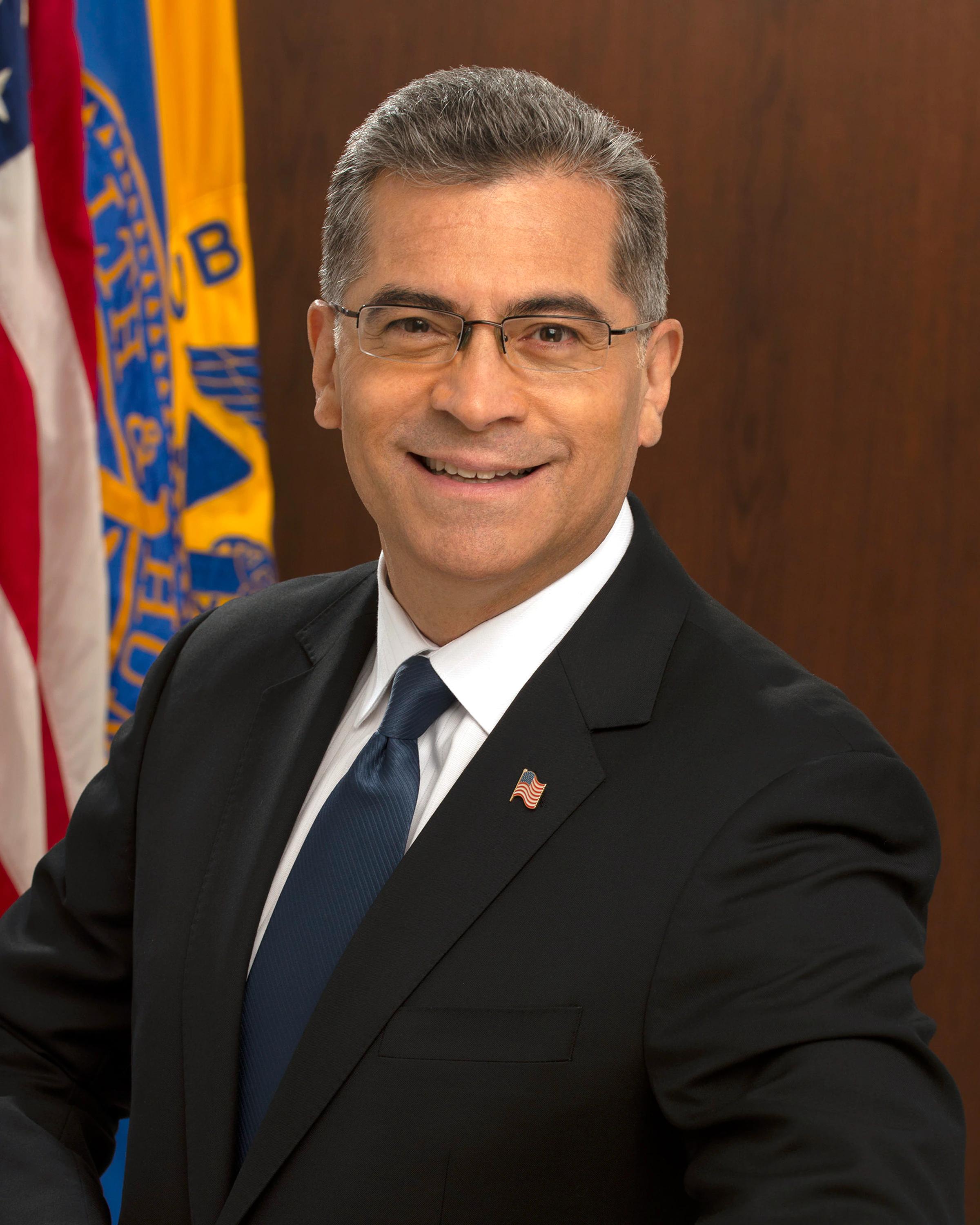HHS plans to simplify Medicaid, CHIP enrollment, and advocates say it’s about time
Many eligible Americans aren’t enrolled because the application process is too burdensome. A new proposal would make it easier for some to get access to healthcare.
The federal government has unveiled plans to make it easier for children of families with low-incomes and those with disabilities to get access to healthcare, and advocates say those efforts are both welcome and long overdue.
U.S. Health and Human Services Secretary Xavier Becerra

This week, the U.S. Department of Health and Human Services introduced a proposed rule to simplify enrollment in the Children’s Health Insurance Program, Basic Health Program and Medicaid.
President Biden’s administration is proposing major changes to the Children’s Health Insurance Program, dubbed CHIP. Children would be permitted to enroll in CHIP right away without any waiting periods, under the administration’s plans. The health department has also proposed to end annual and/or lifetime benefit limits in CHIP.
States would also be allowed to transfer children directly from Medicaid to CHIP when a family starts receiving higher income. The administration said this will help families move into CHIP with less hassles and avoid lapses in health coverage. (Here’s a fact sheet on the administration’s proposal.)
If the rule is adopted, it would allow more people to enter Medicaid. The health department projects 2.8 million more Americans would be able to enroll in Medicaid over the next five years, USA Today reported.
Reducing red tape
Advocates for children and those with disabilities endorsed the administration’s plans. Peter Berns, CEO of The Arc, an advocacy organization for those with disabilities, said the proposal would help families obtain needed services with fewer roadblocks.
“The bottom line is these proposed changes are going to help a lot of people navigate getting the benefits they need and keeping them,” Berns said in a statement.
“We frequently hear from people with disabilities and their families how incredibly overwhelming it is to get started, and once they have Medicaid or other federal health benefits, maintaining eligibility is a struggle due to red tape,” he said. “We look forward to working with the Administration to finalize these changes to improve the lives of people with disabilities and their families.”
Some who are eligible for Medicaid or CHIP don’t apply or give up on enrollment because the application process has too many obstacles, federal officials say.
The health department said the new rule would streamline the application process for those who are eligible Medicaid, CHIP, or Basic Health Program coverage, but don’t have it.
If approved, the Biden administration said the proposed rule would limit renewals to once every 12 months; allow applicants 30 days to answer information requests; and require pre-populated renewal forms. In addition, the rule would implement consistent renewal policies across the states, the health department said.
Advocates say the federal proposal eliminates a great deal of red tape that impedes Americans from getting healthcare coverage they need.
‘Long-overdue improvements’
Bruce Lesley, president of First Focus for Children, said the changes would reduce burdens that cause thousands of children to lose their health coverage every year.
“These long-overdue improvements to Medicaid and the Children’s Health Insurance Program could not come at a better time,” Lesley said in a statement. “A recent analysis by First Focus on Children and partner advocates found that paperwork and other burdens could cost nearly 7 million children — disproportionately Black, Latino and indigenous children — their health insurance at the end of the Public Health Emergency, currently scheduled for October.”
The health and human services department introduced the proposal a couple weeks after they projected that millions would lose healthcare coverage when the federal government ends the COVID-19 public health emergency. The emergency designation includes provisions expanding Medicaid enrollment, which expire when the emergency ends.
As many as 15 million people could leave Medicaid and the Children’s Health Insurance Program when the public health emergency ends, HHS projected in an Aug. 19 report. Hospitals have urged the government to continue the public health emergency well beyond October.
U.S. Health and Human Services Secretary Xavier Becerra said the new policy will help make healthcare more affordable and accessible. In a post on Twitter, Becerra called it “a big step to make it easier for millions of children and others to access, and keep, health care coverage.”
“Medicaid and CHIP provide essential health care to millions of families across the country, and we are making it easier to enroll children and others in health insurance and to maintain coverage,” Becerra said in a statement.
The guidance also states that if recipients can’t be reached by mail, states should check all available data sources before terminating benefits.
The Biden administration has focused on closing disparities in healthcare outcomes in underserved communities and groups. Chiquita Brooks-LaSure, administrator of the Centers for Medicare and Medicaid Services, said the new policy is aimed at improving health equity.
“CMS is acting today to protect and strengthen health care coverage for the more than 88 million people enrolled in Medicaid, CHIP, and the Basic Health Program,” Brooks-LaSure said in a statement. “This proposed rule will ensure that these individuals and families, often from underserved communities, can access the health care and coverage to which they are entitled – a foundational principle of health equity.”
The proposed rule would make it easier for American to enroll for Medicare Savings Programs, thus making it easier to pay their Medicare premiums, Brooks-LaSure said.
While applauding the proposal, some advocates said the Biden administration could do more.
“The next step is to make CHIP permanent,” Lesley said in a statement.
“CHIP is the only federal health insurance program that requires constant renewal,” Lesley said.
Telehealth faces a looming deadline in Washington | Healthy Bottom Line podcast
February 12th 2025Once again, the clock is ticking on waivers for telemedicine and hospital-at-home programs. Kyle Zebley of the American Telemedicine Association talks about the push on Congress and the White House.